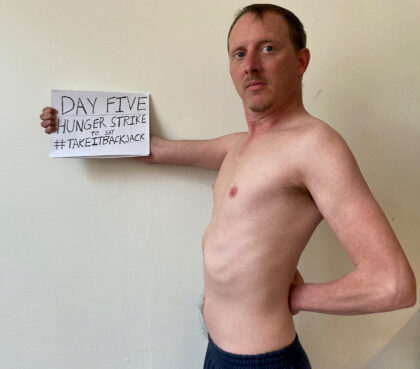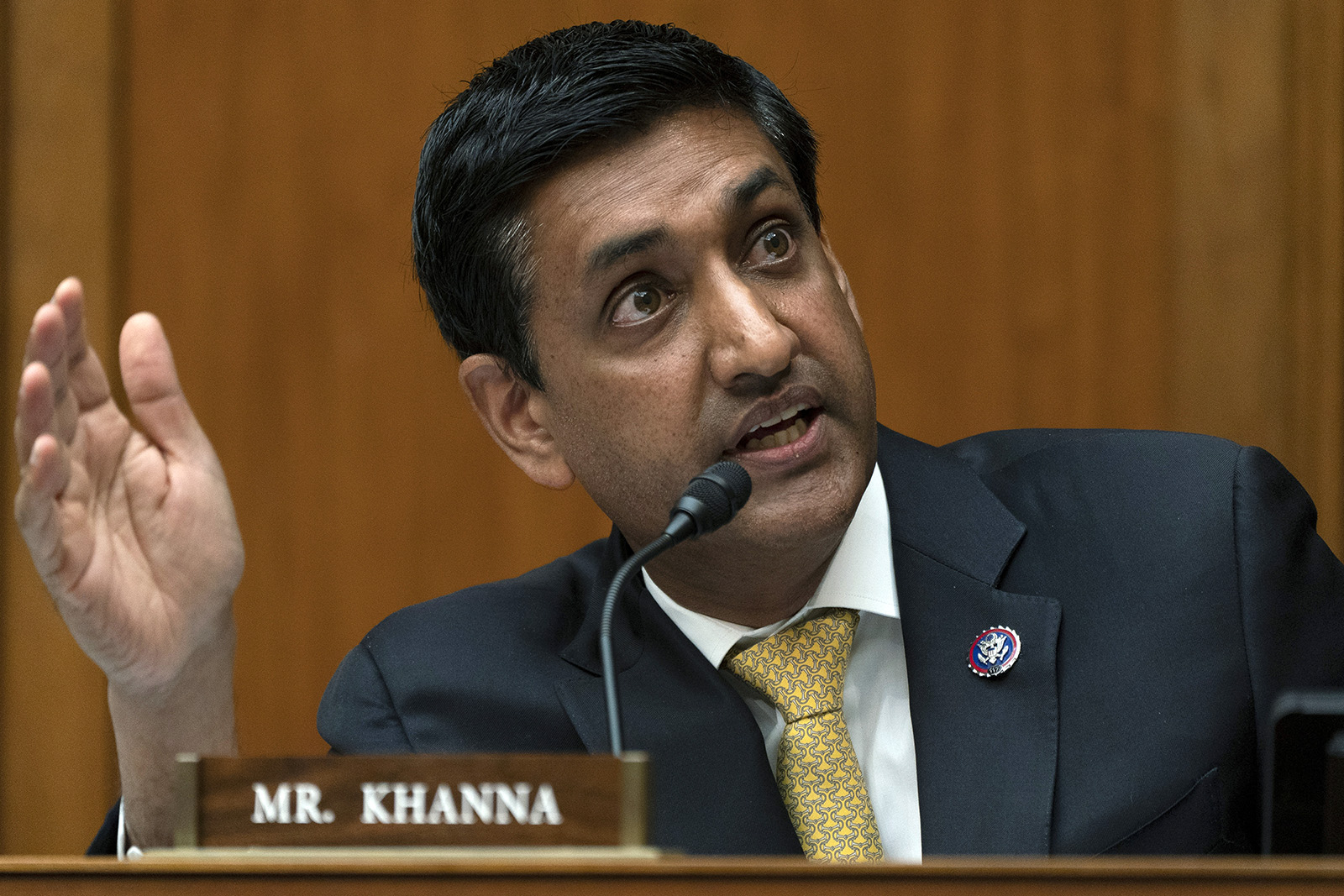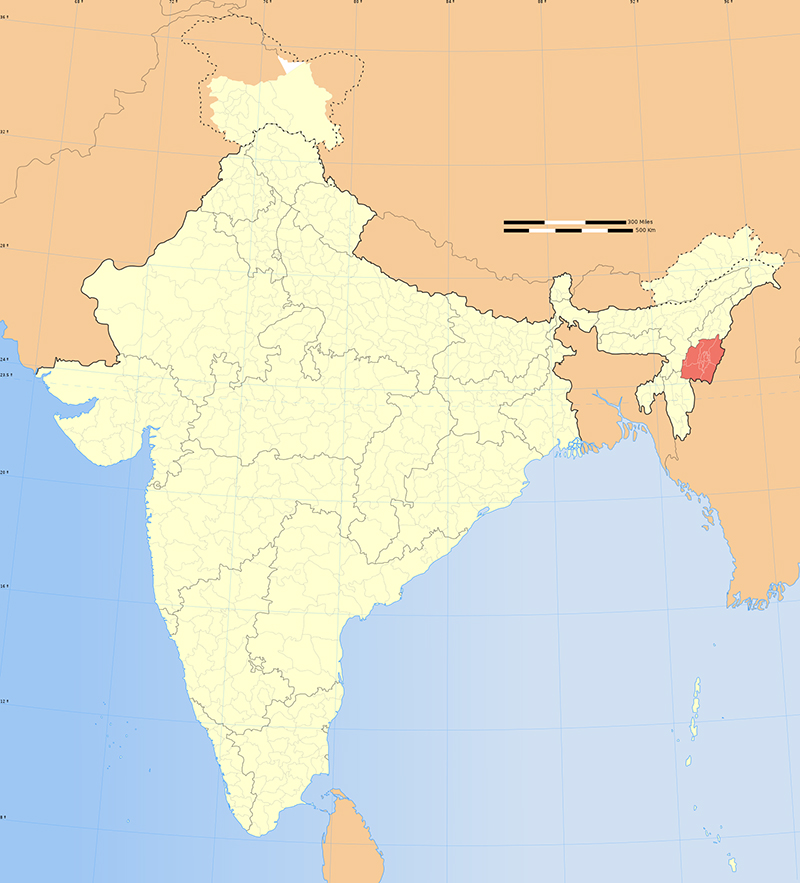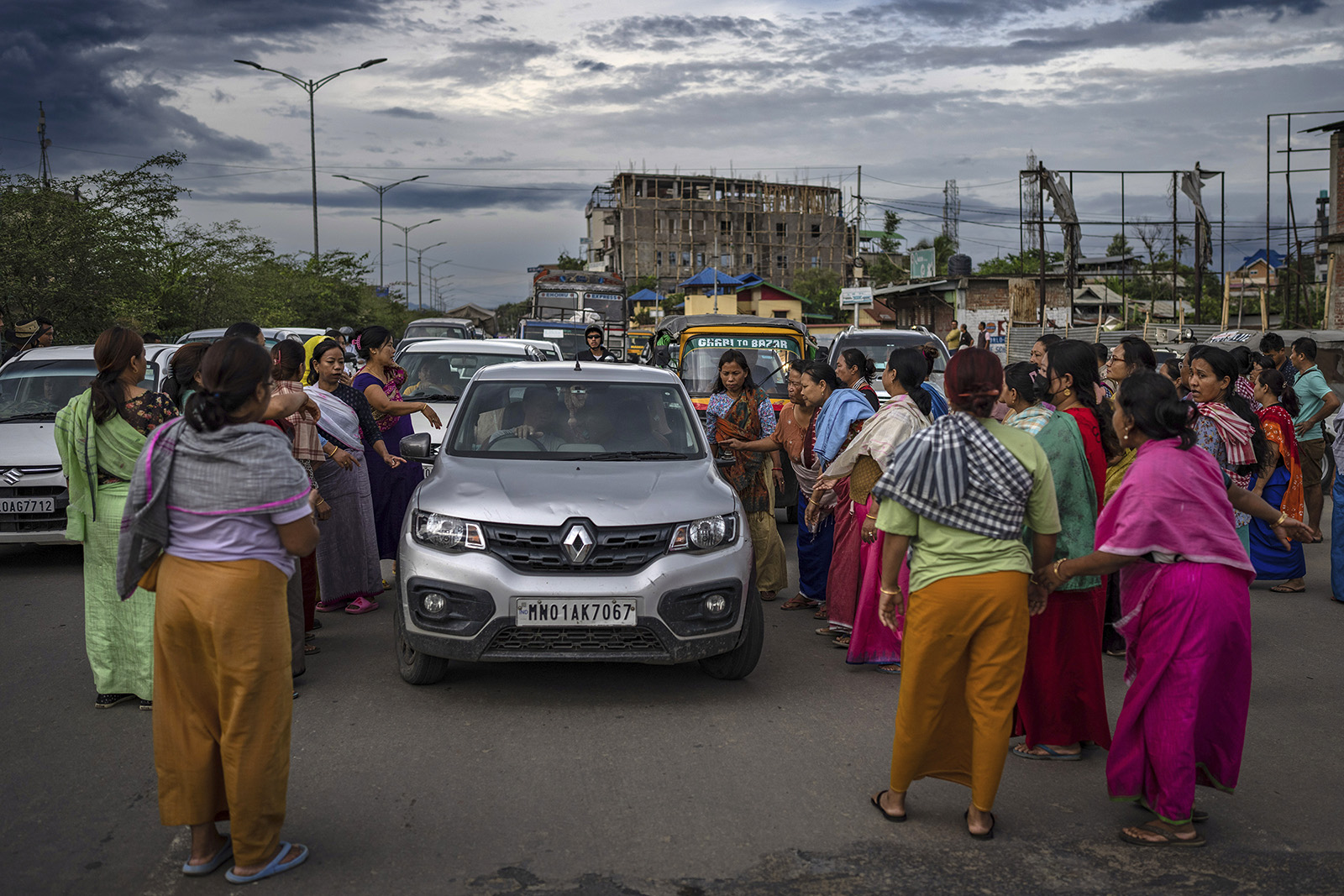(RNS) — For nine days, Pieter Friedrich starved himself to get his congressman’s attention. Drawing from his own Christian tradition of prayer and fasting and the Indian political tactic of “satyagraha,” the activist and journalist fasted from July 27 until Aug. 5, aiming to convince U.S. Representative Ro Khanna, a California Democrat, to speak on the House floor about violence against Christians.
“He has not just a political responsibility, but a human responsibility to raise these issues,” said Friedrich, after he had abandoned his strike. “I believe the only way he continues to refuse doing so is because he’s continuing to straddle the fence.”
The Christians whose plight Friedrich was demanding Khanna take responsibility for, however, were not Californians, but live more than 7,000 miles away in Manipur, India. The fence he was accusing an American congressman of straddling was U.S. policy toward Indian Prime Minister Narendra Modi and his troubling history of Hindu nationalism.
From President Joe Biden to Indian American congressmembers like Khanna, American politicians are under increasing pressure to account for their courtship of Modi, the leader of a strategically important ally and the world’s largest democracy, while ignoring the Indian regime’s oppression of religious minorities.

Pieter Friedrich holds a sign during his recent hunger strike. Courtesy photo
Modi’s recent visit to Washington, where he met with President Biden, attended a state dinner and addressed Congress, fully rehabilitated a figure who, in 2005, was refused a visa by the U.S. State Department. At the time, Modi, then chief minister of the state of Gujurat, held a precarious position on the international stage after 1,000 of his constituents, mostly Muslims, died in religious riots. Since being elected prime minister in 2014, his record has improved, but marginalization of minority groups has continued.
In its 2023 Annual Report, the U.S. Commission on International Religious Freedom cited India for its “systematic, ongoing and egregious violations of religious freedom.”
In May of this year, violence erupted in the Imphal Valley of Manipur, in Northern India, after members of the mostly Christian Kuki tribe protested a court order extending benefits to the Meiteis, an ethnic group many Kukis believe the government already favors. After the protest, Kuki were subjected to egregious violence and sexual crimes by Meitei mobs.
Friedrich, a human rights advocate whose Twitter account has been banned twice in India for putting pressure on the Modi regime, has also urged American politicians of Indian heritage to speak out against rights violations in India.
“I feel like I’ve been called to be doing what I’m doing,” said Friedrich in an interview with Religion News Service. “These are people from my community, and I believe in the teaching that we are all one body in Christ. And whatever does harm to that body does harm to the whole.”

FILE – Rep. Ro Khanna, D-Calif., speaks at a hearing Oct. 28, 2021, on Capitol Hill in Washington. (AP Photo/Jacquelyn Martin, File)
On July 30, midway through his hunger strike, Friedrich attended a Khanna town hall to confront him. A Kuki-Zomi Christian woman also spoke about her family, who has been victim to the violent clashes.
“I believe that there should be absolutely no violence against any place of worship,” Khanna told the town hall audience. “I will be co-leading a bipartisan delegation in coordination with the State Department that will build on President Biden’s relationship with India, which is critical to American foreign policy interests.”
The co-chair of the Congressional Caucus on India and Indian Americans, Khanna has been working on U.S.-India relations since his election in 2017. He has condemned Hindu nationalism, which many accuse Modi’s government of promoting, but in June, Khanna invited Modi to address the India caucus. Modi’s opponents say the invitation was a public affirmation. Khanna’s tepid official response to the violence in Manipur was considered another strike against him.

The state of Manipur, red, in Northeastern India. Map courtesy Wikipedia/Creative Commons
“A lot of people in D.C. have made this calculation that for the sake of a deeper U.S.–India relationship, they need to be nice to Prime Minister Modi,” said Ria Chakrabarty, policy director of Hindus for Human Rights.
On Aug. 7, Hindus for Human Rights, along with the Indian American Muslim Council and India Civil Watch International, met with Khanna ahead of a planned trip to India to discuss their concerns, especially regarding the role of Modi’s Bharatiya Janata Party “in eroding democracy and rights.”
In response, Khanna “expressed his unwavering commitment to upholding democratic values and human rights both within India and the United States,” according to a Hindus for Human Rights press release.

Florence Lowe. Photo courtesy NAMTA
Modi’s U.S. visit did prompt some politicians to speak out. U.S. Rep. Pramila Jayapal of Washington led more than 70 legislators in sending a letter urging President Biden to bring up human rights and democratic values in India.
But activists have begun to organize to sway the debate and demand action. Two days after the crisis in Manipur began, Florence Lowe, a tech entrepreneur in Dallas, founded the North American Manipur Tribal Association with the goal of bringing justice to the victims. Her 77-year-old mother, her sister-in-law and young nieces and nephews live in Manipur.
“It’s just evil,” said Lowe. “I don’t recognize who these people are.”
In May, Lowe got a harrowing call from her sister telling Lowe that the family had been forced to flee from their home in the town of Paite Veng. (They were originally sheltered by a Hindu Meitei neighbor, and have since found refuge with family.)
In the continuing violence, houses have been burned and looted by mobs and churches destroyed. The Lowe’s neighborhood church was razed, and along with it the pulpit Lowe’s father had designed. Aside from the thousands of displaced Kukis, hundreds of others have been physically attacked, raped or killed. Lowe is worried that violence in Manipur will soon be forgotten and seen as “one of the many atrocities.”
“Just trying to raise awareness is not working,” she told RNS. “We need the body of Christ to speak up.”

FILE- Members of Meira Paibis, a powerful vigilante group of Hindu majority Meitei women, block traffic as they check vehicles for the presence of members from the rival Christian tribal Kuki community, in Imphal, capital of the northeastern Indian state of Manipur, June 19, 2023. (AP Photo/Altaf Qadri, File)
N. Biren Singh, the governor of Manipur, a Meitei Hindu, is a member of the BJP. Singh has referred to the violence as “pre-planned,” adding that a “foreign hand” cannot be ruled out.
The crisis only gained national attention in India when a video of Kuki Christian women being paraded naked in Manipur went viral. Modi called the video “the most shameful,” but many were disappointed that his response came more than two months into the conflict.
Lowe is clear that the U.S. government has the responsibility to address ethnic cleansing of this nature, no matter what the deep-rooted cause of violence is.
“I’ve always been religious, but this has made me so much more of a believer,” said Lowe. “One thing I’ve realized is that for all my education and experience, I don’t know how to solve this problem. I’ve realized that God is the only one who can really do anything.”

